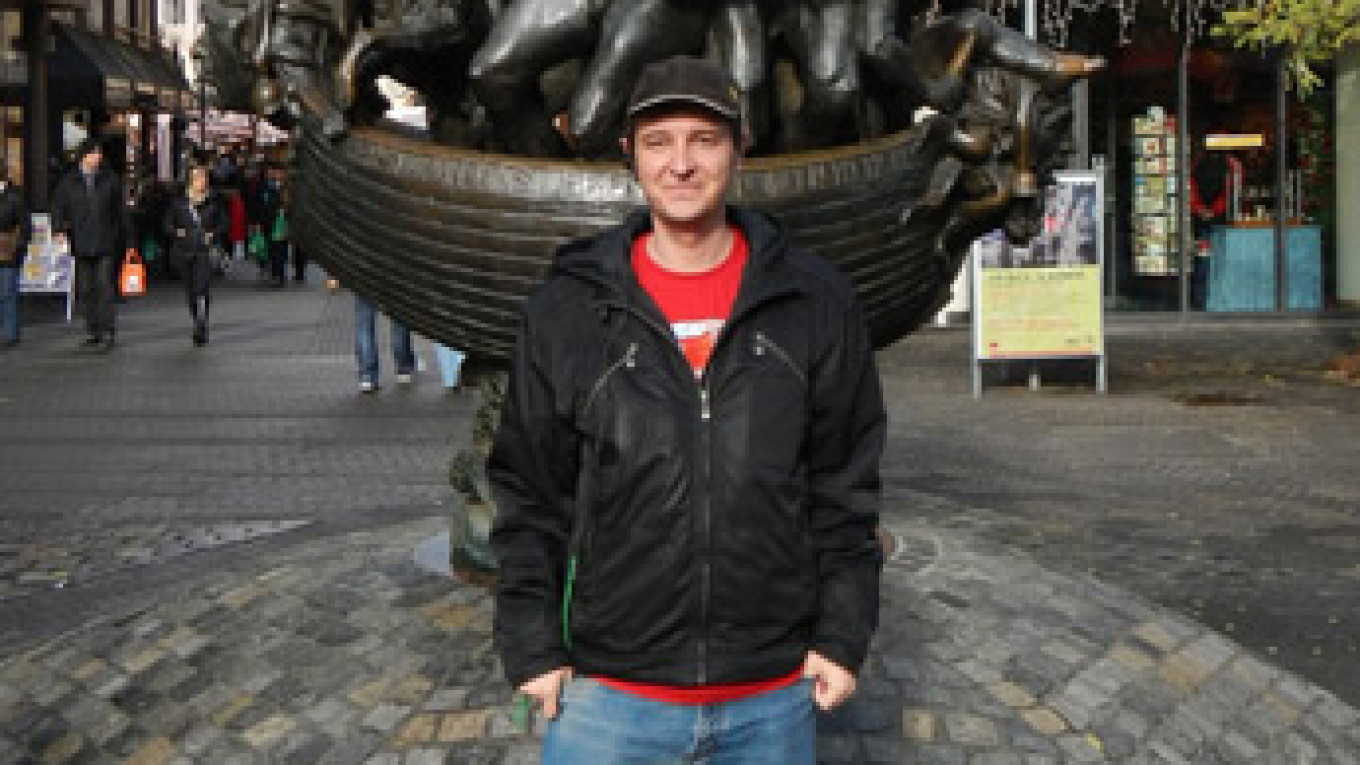Even after Eugene Goostman, 13, justified his nickname of "the weirdest creature on Earth" by passing the Turing test, one of his fathers told The Moscow Times that the teen has not yet managed to prove his sentience.
Goostman is a chatterbot, a program that imitates real human conversation, and the Turing test determines whether a machine can successfully imitate an intelligent being.
Since its introduction 64 years ago, no machine had passed the Turing test before Goostman, whose main creators are software developers Vladimir Veselov and Eugene Demchenko, natives of Russia and Ukraine, respectively.
This year's test was held at the Royal Society in London on Saturday. Jury members had five-minute online conversations with five humans and five chatterbots and were then asked to guess which were which.
The benchmark was not set too high. To pass the test, a program was only required to fool humans in more than 30 percent of conversations.
The Eugene Goostman, which poses as the Odessa teenager it was named after, was the only machine to qualify, scoring 33 percent.
Anyone can match their ability to hold intelligent conversation against Eugene at the Princeton University website.
In a brief test carried out by The Moscow Times, the Harry Potter lookalike successfully fielded a question about the weather ("All this talk about weather is a waste of time"), but failed at "how's it going?" ("I don't know how") and could not offer anything coherent when queried about whether he fancied a drink.
The Turing test was developed by British mathematician Alan Turing in an attempt to answer the question: "Can machines think?"
Eugene's passing the test has thus generated much hype. A glowing press release from the University of Reading, the event's co-organizer, promised that "this milestone will go down in history as one of the most exciting."
The test, however, was a rare mistake made by Turing, who has generally been hailed as a genius and one of the fathers of modern computer science, Demchenko said.
"Chatterbots have as much to do with artificial intelligence as radio-controlled battery-powered toys with a smart phone," he said by telephone from St. Petersburg.
Programs basically pass the test by cheating people, reacting to keywords, including emotionally loaded ones, and then plowing databases of possible answers for a fitting reply, Demchenko said.
In all, the program was a hobby for everyone involved, having "more to do with art than science," said Demchenko, who worked on Eugene's core back in 2001, but has since pulled out of the project.
However, even chatterbots can be useful, serving as a base for virtual personal assistant programs, he conceded.
The University of Reading also warned that the result of the Turing test "is a wake-up call to cybercrime." It remains to be seen whether the young Mr. Goostman, if he fails to usher in a revolution in man-machine relations, will grow up to a life of crime.
See also:
Laboratory of Killer Robots 'Already Functioning'
Contact the author at [email protected]
A Message from The Moscow Times:
Dear readers,
We are facing unprecedented challenges. Russia's Prosecutor General's Office has designated The Moscow Times as an "undesirable" organization, criminalizing our work and putting our staff at risk of prosecution. This follows our earlier unjust labeling as a "foreign agent."
These actions are direct attempts to silence independent journalism in Russia. The authorities claim our work "discredits the decisions of the Russian leadership." We see things differently: we strive to provide accurate, unbiased reporting on Russia.
We, the journalists of The Moscow Times, refuse to be silenced. But to continue our work, we need your help.
Your support, no matter how small, makes a world of difference. If you can, please support us monthly starting from just $2. It's quick to set up, and every contribution makes a significant impact.
By supporting The Moscow Times, you're defending open, independent journalism in the face of repression. Thank you for standing with us.
Remind me later.







